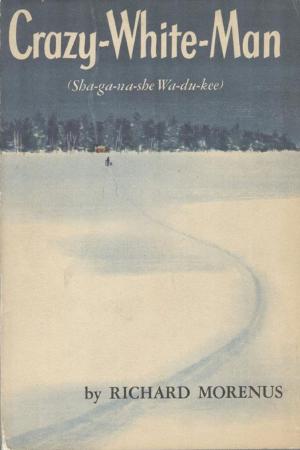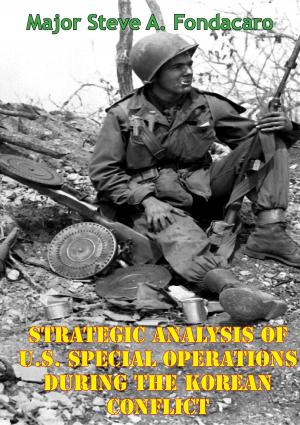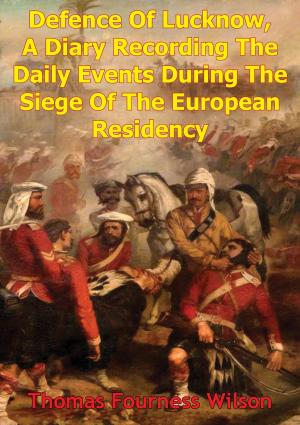The Tale Of The Indian Mutiny [Illustrated Edition]
Nonfiction, History, Asian, India, Military, Other, British| Author: | William Henry Fitchett | ISBN: | 9781786251565 |
| Publisher: | Normanby Press | Publication: | November 6, 2015 |
| Imprint: | Normanby Press | Language: | English |
| Author: | William Henry Fitchett |
| ISBN: | 9781786251565 |
| Publisher: | Normanby Press |
| Publication: | November 6, 2015 |
| Imprint: | Normanby Press |
| Language: | English |
Illustrated with over one hundred maps, photos and portraits, of the battles, individuals and places involved in the Indian Mutiny.
William Henry Fitchett was a prodigious author writing many books on British History, perhaps his most famous is his one volume history of the Indian Mutiny. Variously known as the Sepoy Revolt, or the First War of Indian Independence, it blazed a trail across northern India and its repercussions changed the British rule of India for the next century.
The great East India Company had for many years grown its influence and that of its British masters across the sub-continent; the main tool for this expansion was the Sepoy regiments of native soldiers that they had welded into a formidable weapon of imperialism. However this transformation was heavy-handed, local customs were ignored, traditions unrespected and religious sensibilities ignored; the native Sepoys grew restless. The spark that lit the powderkeg of resentment was the issue of greased cartridges for the Sepoy’s rifles; either greased with pork fat which enraged the Muslims in ranks, or greased with beef tallow appalling the Hindus. Outbreaks of insubordination turned bloody quickly, and led to risings not just of the soldiers but the civilians as well, uncontrollable mobs rent their frustrations in the most barbaric manner and laid siege of Cawnpore and Lucknow capturing Delhi itself. Once the shock had dissipated the British response was rapid, brutal and successful, reliving their besieged forces and crossing the rebels utterly.
Illustrated with over one hundred maps, photos and portraits, of the battles, individuals and places involved in the Indian Mutiny.
William Henry Fitchett was a prodigious author writing many books on British History, perhaps his most famous is his one volume history of the Indian Mutiny. Variously known as the Sepoy Revolt, or the First War of Indian Independence, it blazed a trail across northern India and its repercussions changed the British rule of India for the next century.
The great East India Company had for many years grown its influence and that of its British masters across the sub-continent; the main tool for this expansion was the Sepoy regiments of native soldiers that they had welded into a formidable weapon of imperialism. However this transformation was heavy-handed, local customs were ignored, traditions unrespected and religious sensibilities ignored; the native Sepoys grew restless. The spark that lit the powderkeg of resentment was the issue of greased cartridges for the Sepoy’s rifles; either greased with pork fat which enraged the Muslims in ranks, or greased with beef tallow appalling the Hindus. Outbreaks of insubordination turned bloody quickly, and led to risings not just of the soldiers but the civilians as well, uncontrollable mobs rent their frustrations in the most barbaric manner and laid siege of Cawnpore and Lucknow capturing Delhi itself. Once the shock had dissipated the British response was rapid, brutal and successful, reliving their besieged forces and crossing the rebels utterly.
![Cover of the book The Tale Of The Indian Mutiny [Illustrated Edition] by William Henry Fitchett, Normanby Press](https://www.kuoky.com/images/2015/november/500x500/9781786251565-cJ6b_500x.jpg)
![Cover of the book My Three Years In Manipur And Escape From The Recent Mutiny [Illustrated Edition] by William Henry Fitchett](https://www.kuoky.com/images/2014/august/300x300/9781782895350-I2Wb_300x.jpg)
![Cover of the book Stalemate: U.S. Marines From Bunker Hill To The Hook [Illustrated Edition] by William Henry Fitchett](https://www.kuoky.com/images/2015/november/300x300/9781786256072-vFZF_300x.jpg)

![Cover of the book I Survived Hell On Earth [Illustrated Edition] by William Henry Fitchett](https://www.kuoky.com/images/2015/november/300x300/9781786255785-kHMK_300x.jpg)




![Cover of the book In The Hell Of Auschwitz; The Wartime Memoirs Of Judith Sternberg Newman [Illustrated Edition] by William Henry Fitchett](https://www.kuoky.com/images/2015/november/300x300/9781786255778-ubul_300x.jpg)


![Cover of the book The Final Collapse [Illustrated Edition] by William Henry Fitchett](https://www.kuoky.com/images/2016/march/300x300/9781786258694-i7uE_300x.jpg)


